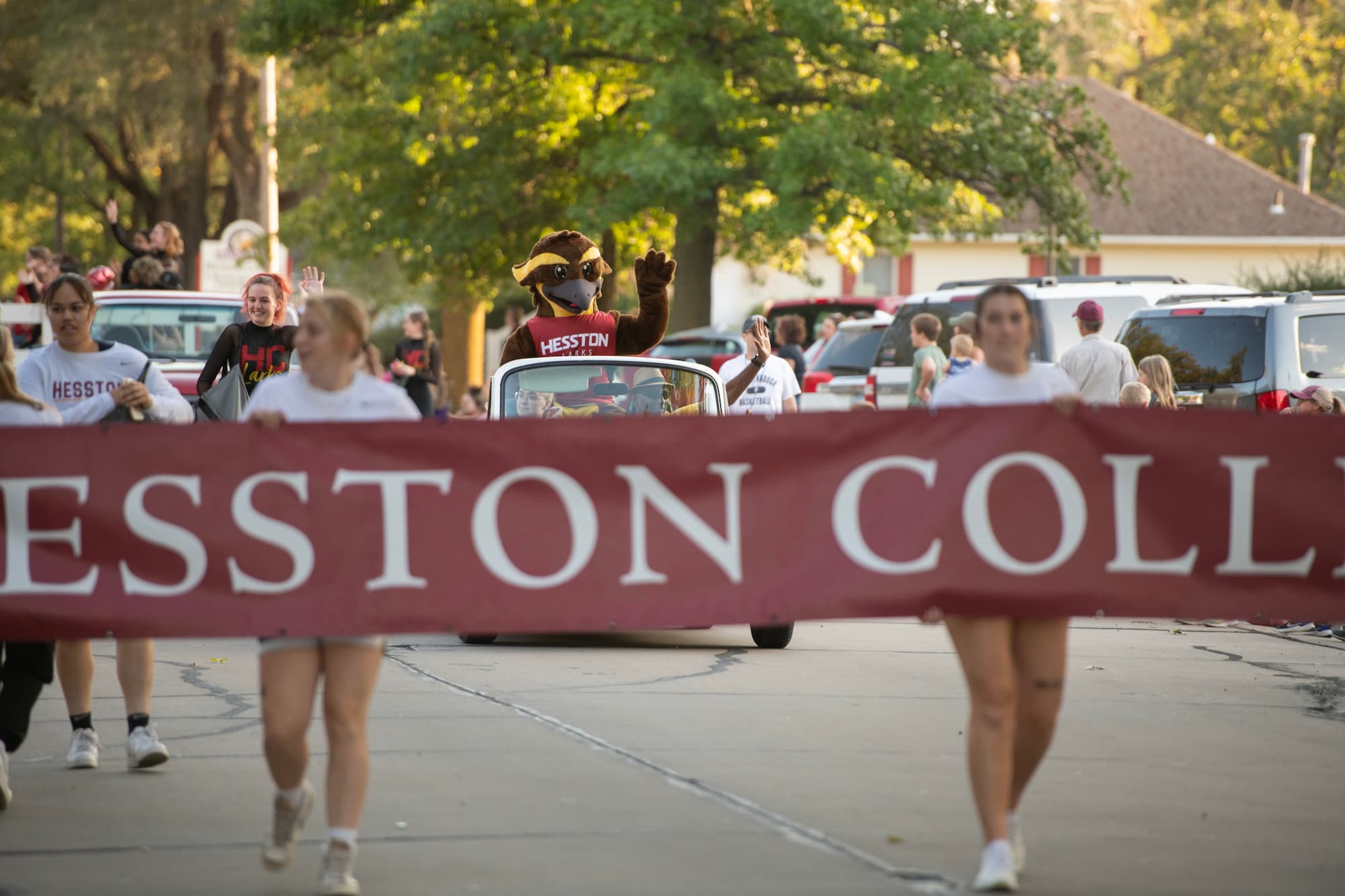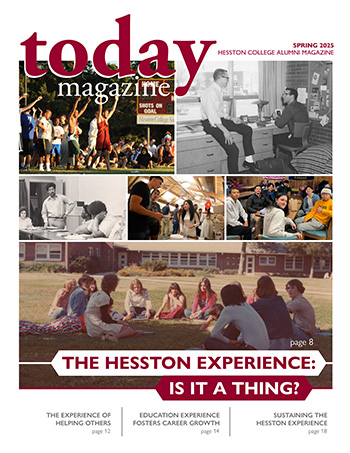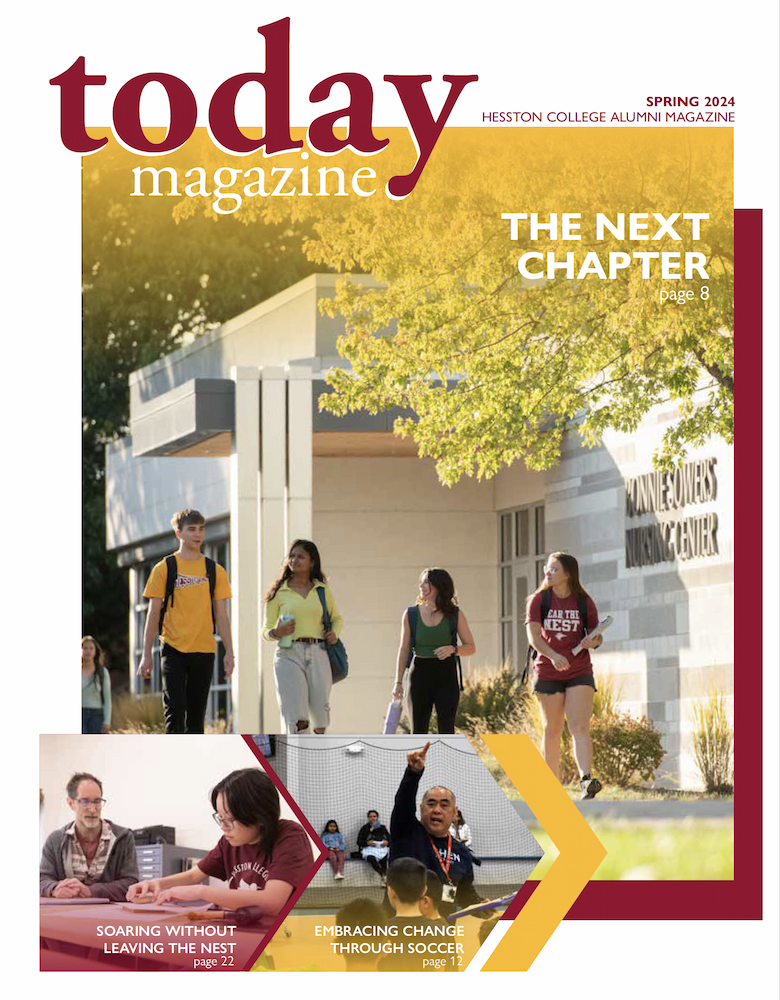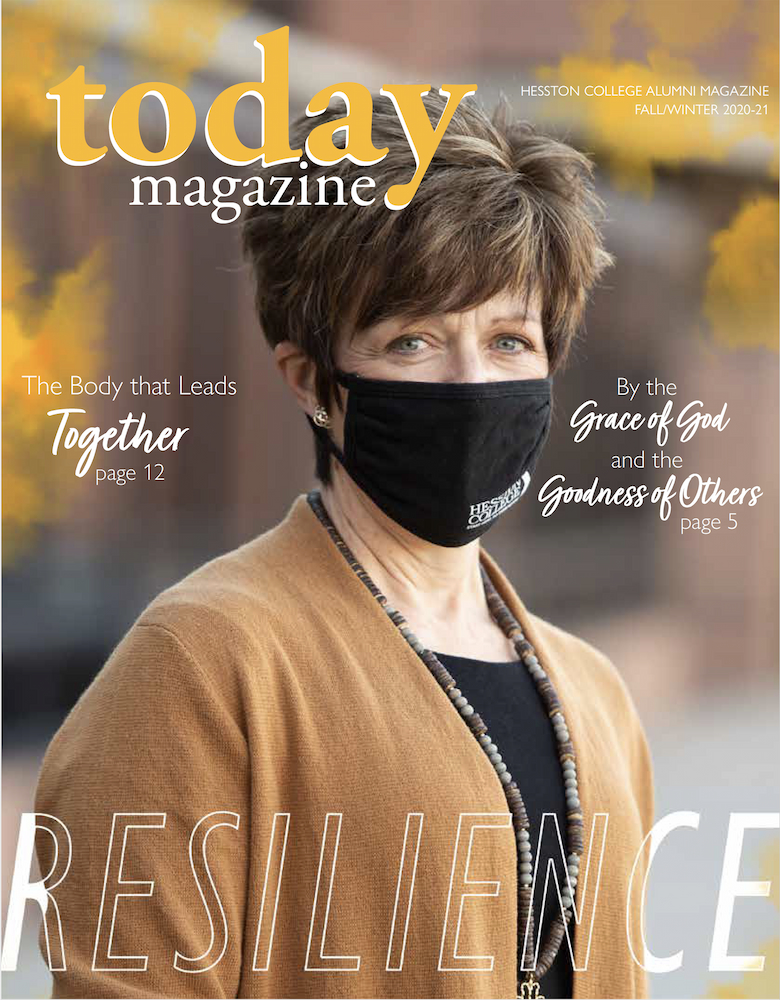

Hesston College Today is a magazine for alumni and friends of the college to help them stay in touch with each other, the college and our students.
Admissions
Apply for Admission
Cost of Attendance
Scholarships and Aid
International Students
International Students Request Information
International Student Admissions Process
International Student Cost of Attendance
Scholarships for International Students
International Student Testimonials
International Student Resources
Admitted International Students
Admitted Students
Visit Campus
Academics
Programs
Fine Arts
Academic Calendar
Intercultural Experiences
Mary Miller Library
Registrar's Office
Student Life
Residential Life
Campus Activities
Campus Ministries
Campus Safety
Events
Opening Weekend
Homecoming
Virtual Class Reunions
Commencement Weekend
Alumni and Friends
Giving to Hesston
Church Relations
About
Leadership, Faculty and Staff
Parking, Directions and Maps
Employment
Consumer Information


Hesston College Today is a magazine for alumni and friends of the college to help them stay in touch with each other, the college and our students.






